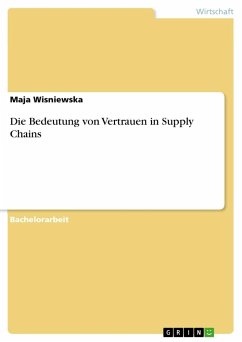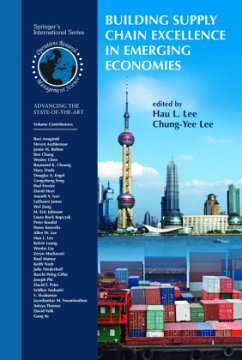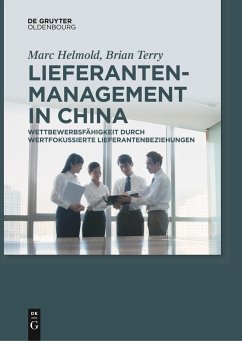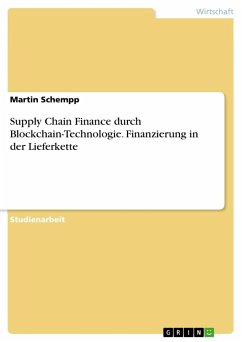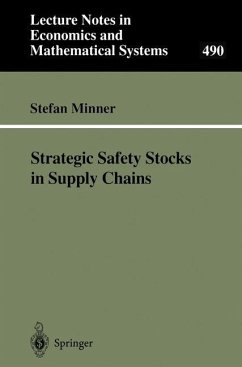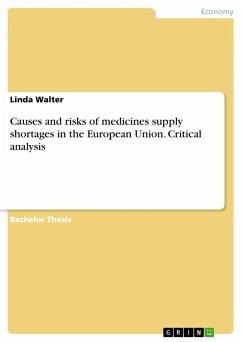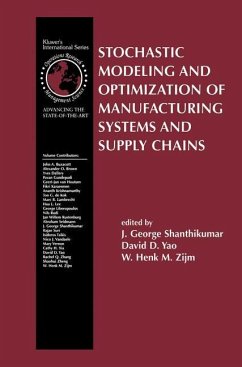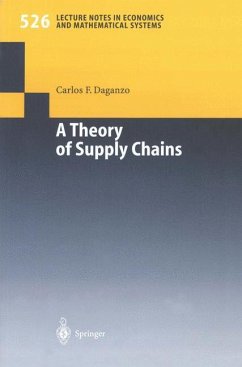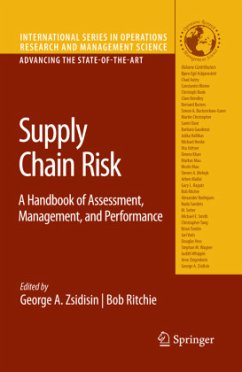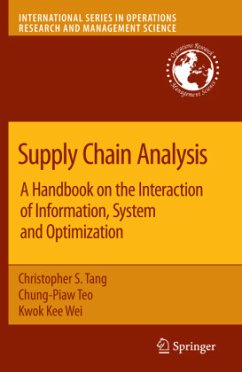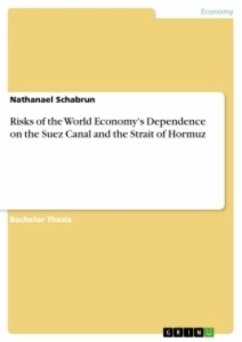
Risks of the World Economy's Dependence on the Suez Canal and the Strait of Hormuz
Versandkostenfrei!
Versandfertig in 1-2 Wochen
27,95 €
inkl. MwSt.

PAYBACK Punkte
0 °P sammeln!
Bachelor Thesis from the year 2021 in the subject Business economics - Trade and Distribution, University of Luzern, language: English, abstract: It is not uncommon for people to appreciate something solely when it is gone, as in the case of food, water, and oil, where the lack of it points out a dependence many did not even know had existed. Billions of dollars were lost when the Suez Canal was blocked by a cargo ship a few months ago. Furthermore, the reliance of the world economy on sea straits is being made even clearer when looking at January 2020, when oil prices increased as tensions be...
Bachelor Thesis from the year 2021 in the subject Business economics - Trade and Distribution, University of Luzern, language: English, abstract: It is not uncommon for people to appreciate something solely when it is gone, as in the case of food, water, and oil, where the lack of it points out a dependence many did not even know had existed. Billions of dollars were lost when the Suez Canal was blocked by a cargo ship a few months ago. Furthermore, the reliance of the world economy on sea straits is being made even clearer when looking at January 2020, when oil prices increased as tensions between the US and Iran escalated, and investors feared an Iranian closure of the Strait of Hormuz, which is one of the world's most important sea straits. With these events in mind, one can clearly see how vulnerable the world economy is; it is dependent on the sea straits remaining open at all times. If one major sea strait is blocked for a prolonged time, this will lead to significant supply disruptions. These disruptions will not only affect the global oil trade and hence the world economy, but also food security and peace, as food shortages are known to contribute to the outbreak of violence, for which the Arab Spring uprising can serve as an example. The aim of this paper is to consider the world's two major sea straits in the Middle East and develop an index in order to estimate the risk that these two straits pose to the world economy.



